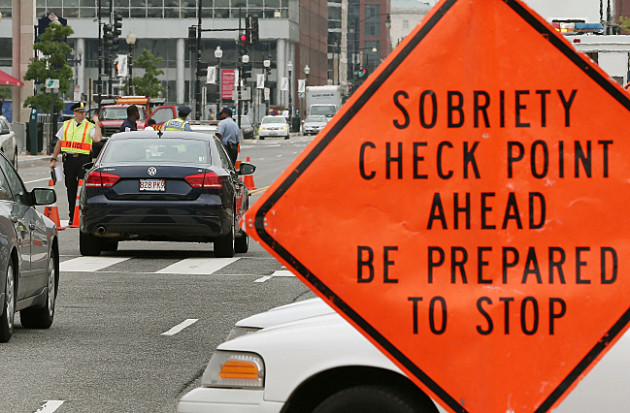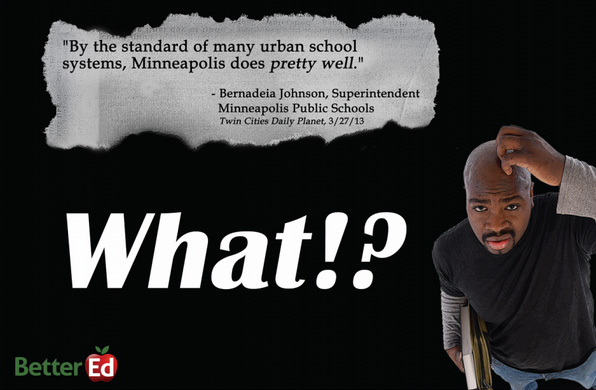1) ROUNDING UP THE INNOCENT TO FIND THE GUILTY
How much are we willing to give up to get drunk drivers off the road? That question may again surface at the upcoming session of the Legislature now that Mothers Against Drunk Driving wants Minnesota to approve sobriety checkpoints.

One of every seven Minnesota drivers has a DUI conviction, but that means six of every seven don’t. Under the MADD proposal, six of seven drivers would be in a position to prove they’re not breaking the law.
Generally, that’s not how our freedom works; that’s why the criminal justice system requires probable cause.
In its report to the nation, MADD is calling on Minnesota to enact sobriety checkpoints, while giving Minnesota only two of five stars in its grading system. Minnesota is one of 12 states that doesn’t allow them.
In 1994, the Minnesota Supreme Court struck down the checkpoints, ruling in the case of Ricky Ascher, who was arrested at a Burnsville Police Department and Minnesota State Patrol roadblock at Nicollet Avenue and Highway 13.
“It seems to us quite possible that a substantial segment of our society would willingly suffer the short term intrusion of a sobriety checkpoint stop in order to remove drunken drivers from the road,” Justice Mary Jeanne Coyne wrote in the decision. “But consensus that a particular law enforcement technique serves a laudable purpose has never been the touchstone of constitutional analysis.”
In her dissent, then Justice Esther Tomljanovich said “the average time a motorist was detained was under two minutes, hardly burdensome when balanced against safety on the highway.”
But that decision has stood and it’s why you don’t have to prove you’re not drunk, just because you happen to be behind the wheel.
That could change, it just needs you to approve a constitutional amendment. (h/t: Aaron Rupar)
Related: Today’s Star Tribune poll suggests it’s only a matter of time before marijuana is legalized in Minnesota. Sixty-three percent, however, oppose it for recreational use.
If it’s legalized, does that further complicate the “driving under the influence” problem in Minnesota? Maybe not, Maggie Koerth-Baker writes. “Some researchers say that limited resources are better applied to continuing to reduce drunken driving. Stoned driving, they say, is simply less dangerous,” she says.
2) THE WINTER OF OUR DISCONTENT
KARE 11 informed us last night that this is the 43rd snowiest winter since records have been kept. New York City has more snow this year than Minneapolis. This is, of course, a blow to our ego and a threat to our general strategy for surviving winter at all: Feeling superior to the rest of the country.
We’ll always have Atlanta, though.
But — and this is a plus for you, Georgia — Minnesota has to claim as its own a couple of kids who thought it would be fun to vandalize the homemade ice castle in Saint Paul.
The homeowner says he heard the commotion around 4:30 in the morning and a couple of kids — around 10-14 years old were seen running away. Just one question, parents: why are your kids out at 4:30 in the morning?
More winter: Freezing waterlines prompt calls to keep residences’ water running (Duluth News Tribune).
3) WHAT’S IN YOUR CREDIT CARD AGREEMENT?
Maybe it’s time to start reading those credit card agreements and privacy documents. Capital One, the people who inundate your mailbox with credit card offers, recently changed its policy to allow them to stop by your home or place of employment when they feel like it, the Los Angeles Times says.
Incredibly, Cap One’s aggressiveness doesn’t stop with personal visits. The company’s contract update also includes this little road apple:
“We may modify or suppress caller ID and similar services and identify ourselves on these services in any manner we choose.”
Now that’s just freaky. Cap One is saying it can trick you into picking up the phone by using what looks like a local number or masquerading as something it’s not, such as Save the Puppies or a similarly friendly-seeming bogus organization.
This is known as spoofing, and it’s perfectly legal. As I’ve written before, the federal Truth in Caller ID Act makes it a crime to use a phony number or caller ID message to commit fraud or cause harm to others.
But it’s not against the law to engage in what courts have called “non-harmful spoofing,” which includes businesses wearing digital disguises to penetrate a consumer’s phone defenses.
Such corporate spoofing is employed primarily by telemarketers. It’s weird, to say the least, for this practice to be so publicly adopted by a major credit card issuer.
4) KEVIN GROW GOES TO THE NBA
Kevin Grow, a senior at a high school in Pennsylvania, got a little playing time for the last two games of the season. He’s the team manager but he scored a layup and then hit four three-pointers.
Then he got a contract from the Philadelphia 76ers. Kevin has Down Syndrome. (h/t: Matt Wells)
More sports: Minnesota Town Seems To Churn Out Olympic Ice Hockey Players (NPR).
5) THE LUCK AND REALITIES OF THE CLASSROOM

A Twin Cities teacher responds to the blaming of teachers and schools for the achievement gap. Kari Johnson penned a response — reprinted on Twin Cities Daily Planet — to Better Ed, which is sending postcards out calling for more education reform:
One parent who called me back a couple weeks ago called from a battered women’s shelter. Another parent who came in for a conference a week ago is a single father with four children. No wonder his daughter has been acting out. She has a broken heart, feeling abandoned, and truly is physically abandoned by her mother. Another mother apologized to me on the phone because she has been working nights and is unable to oversee her daughter’s bedtime and homework completion, but she will try and follow through as best she can.
And then I must tell you that even “L,” after her moderate “success” in my class last Friday, threw a chair violently across the room in a later class and will hence miss some school as a result. I know this teacher across from me hall. She is a saint, doing the homework help. Are you going to blame her now? I would very much also like to see you in her shoes. It brings a smile after just reaching for the kleenex, thinking about L.
Bonus I: Improv Everywhere convinces people they’re part of an Olympic torch run.
Bonus II: Remember when you could tell a lot about people by their area code. It used to mean something.
Bonus III: For reasons that aren’t entirely clear, unless it’s how he’s chosen to make it through a long winter, a man has made a to scale model of the late, not-that-great Metrodome for use in the Minecraft computer game.
More on Reddit. (h/t: Ben Chorn)
TODAY’S QUESTION
Do questions over testing inform your view of marijuana legalization?
WHAT WE’RE DOING
Daily Circuit (9-12 p.m.) – First hour: In a recent Daily Circuit discussion on advances in genetic mapping the issue of how to interpret your results and talk about them with your doctor arose. But the question goes much further. What happens when your sequence or even a regular screening result shows something different other than what answer you thought you would get? These occurances are known as “incidental findings”, or ’“discoveries about an individuals DNA and other findings, health-related information that show up while hunting for something else” according to Science Magazine . What do doctors owe patients in information? What if a patient doesn’t want to know certain information? The Daily Circuit will start to sort through some of these questions with guests Dr. Susan Wolf and Dr. Danielle Ofri.
Second hour: Parents have always wanted the best for their children. That’s a given. But lately, we seem to be awash in parents who are consumed with eking out every last opportunity to help their kids gain a competitive edge, sometimes even at the cost of happiness. Jennifer Senior examines the toll that being an architect for your brood might be taking in her new book, “All Joy and No Fun: The Paradox of Modern Parenthood.”
Third hour: David Stuart MacLean, author of “The Answer to the Riddle Is Me.”
MPR News Presents (12-1 pm) – The latest Intelligence Squared (IQ2) debate: Should Edward Snowden be granted clemency?
The Takeaway (1-2 p.m.) – Everything you need to know about the ongoing conflict in Venezuela.
All Things Considered (3-6:30 p.m.) – They’re knocking the Metrodome down, and Claudia Fuglie is glad to see it go. The Vikings fan from Robbinsdale gets around in a motorized wheelchair that compounded the stadium’s well known problems: a lack of elevators, poor bathrooms and narrow concourses. Both the new Vikings stadium and the new Saints stadium are replacing facilities built before the Americans for Disabilities Act and advocates for the disabled say they’ve been working to build in better access for generations to come. MPR’s Tim Nelson will have the story.
Heather Jansz is credited as the first person to bring super spicy curry to Minnesota. Today, over three decades later, she’s essentially an ambassador for curry and its health benefits. Does this sound like a Nikki Tundel story? It is.
Buying a light bulb used to be easy, but not so anymore. Today, the choices are confusing, even daunting: CFLs vs LEDs, lumens vs watts. NPR explores the latest offerings in light bulbs.

